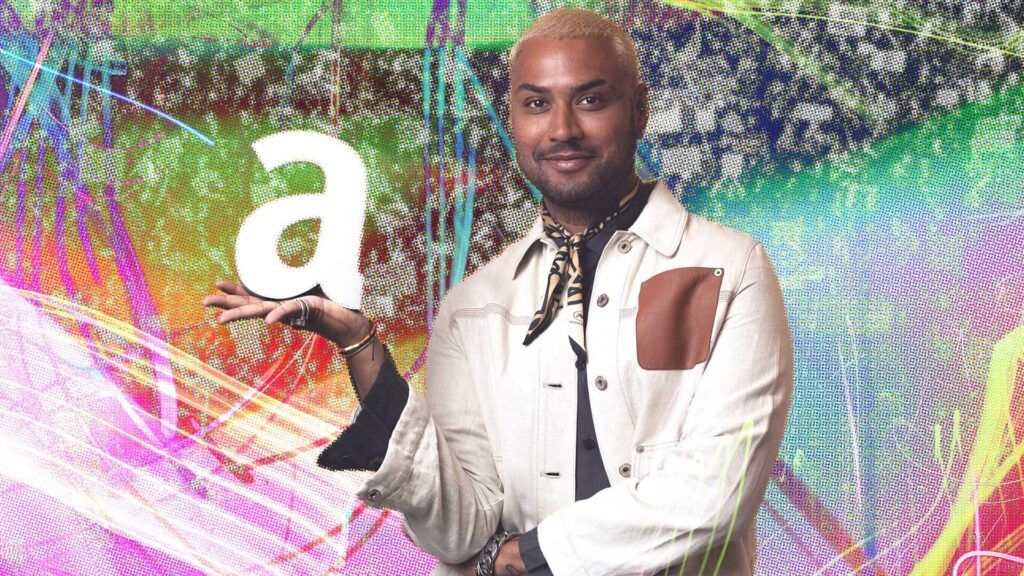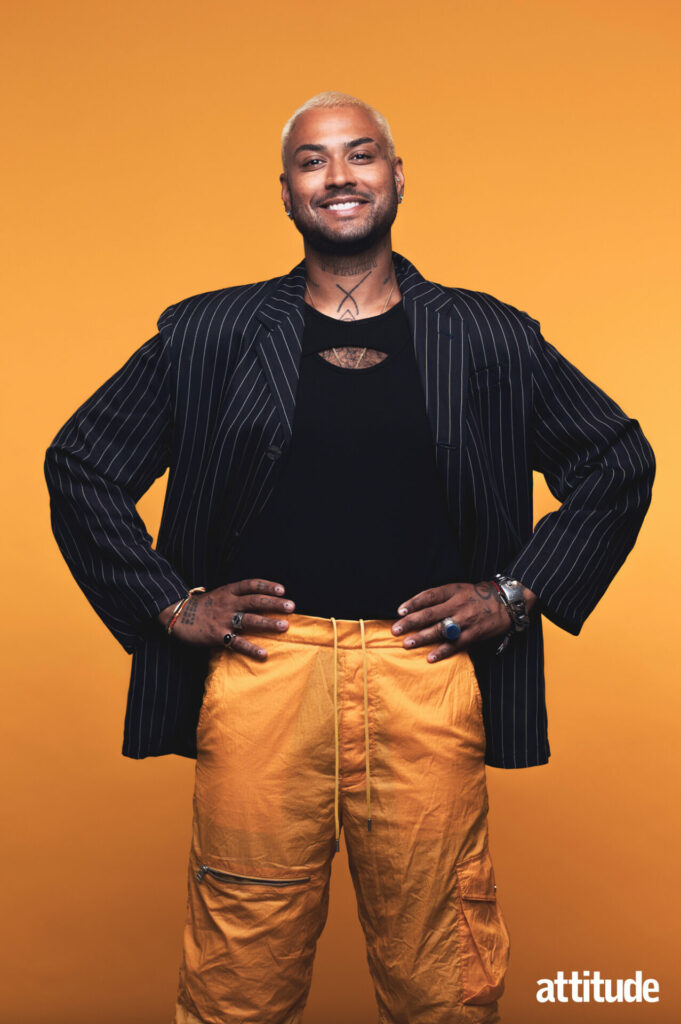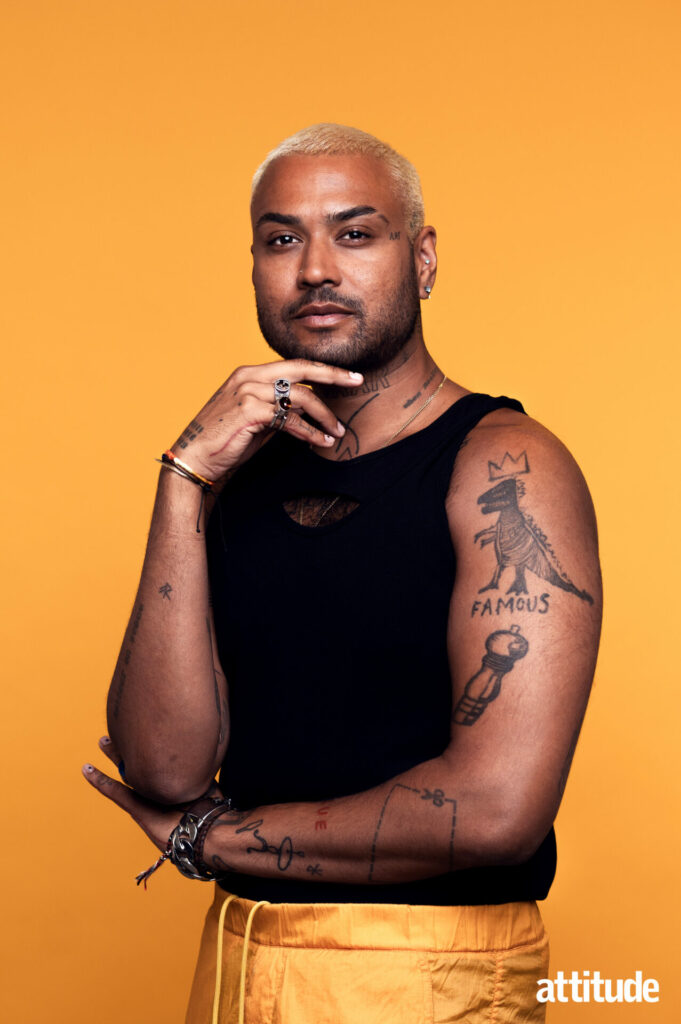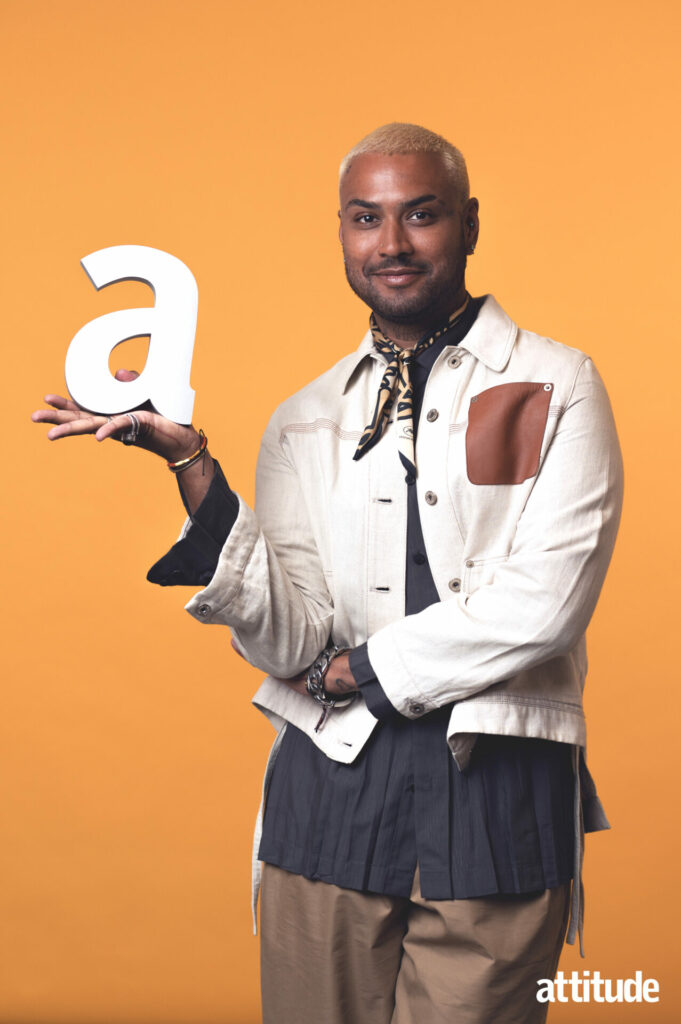HUNGAMA’s Ryan Lanji on making a place for queer South Asians: ‘I just don’t think I’ve ever taken stock’
Ryan Lanji has been honoured at the 2023 Attitude Pride Awards, in association with Magnum.

If it wasn’t for “one unfortunate night” in 2015, HUNGAMA, the “South Asian, alternative, queer, Bollywood night”, as its founder Ryan Lanji describes it, may never have come about.
After leaving Canada for London aged 23 in 2010, a bright-eyed and optimistic Ryan quickly began making a name for himself in the fashion world with work like Nailebilia, the world’s first nail art exhibition. “I was always really interested in how people interact and create something together that becomes a cultural phenomenon,” he says of his inspirations, which include Andy Warhol and the club culture of New York City.
Then, following a break-up, Ryan was in need of community, so he drew up a list of queer spaces he found in Attitude and Time Out. Venturing alone to these places, he made friends but says he never quite felt connected. As a person of colour, he explains he’s used to being “exoticised” and to people wanting to get to know him for tokenistic reasons. But then one night, someone was “so dismissive they didn’t want to know my name”, Ryan recalls. So, he left. That night, to ease his sadness, he played Bollywood music, a passion of his, because it made him feel like he was getting a hug from his mum. It was a pivotal moment.
“I envisioned Bollywood to be opulent, flamboyant, cutting edge, visceral and gargantuan.”
Soon afterwards, Ryan approached The Glory about hosting a “gay night for gay men who want to listen to Bollywood music”. He insisted on the name being HUNGAMA – meaning ‘chaos and celebration’ – and he wanted it to be different from other queer South Asian nights such as Club Kali. “I went to a couple of them before I conceived HUNGAMA. No one was really out and proud. I envisioned Bollywood to be opulent, flamboyant, cutting edge, visceral and gargantuan. I just never saw it.”

The first HUNGAMA took place in May 2017, creating an immersive sense of celebration, insanity and chaos. Despite early success, the first days were not easy; a community had to grow, and in time it did. While HUNGAMA’s second night had one or two DJs; now it boasts between 10 and 20, with performers such as Dosa, Cat and DJ Aisha Mirza getting their break there.
Says Ryan proudly, “I personally believe it will be revered as a moment where South Asian queer people and creatives got to interact and grow together.” When I ask what HUNGAMA would have meant to a younger Ryan, the sense of what he’s achieved hits home. “I feel like it was always part of my purpose,” he continues, welling up with emotion. “There just hasn’t been an access point for anyone to be proudly South Asian and queer. I’m so proud that HUNGAMA has been able to be one of the main places where your authenticity is what you get to celebrate.”
“Just come as you are, and we’ll help you find what you believe in. It’s what I didn’t have”
Although HUNGAMA has been influenced and catalysed by Ryan’s upbringing, it’s never been a radical act of defiance to the frowned-upon attitude towards queerness that many in South Asian communities may be familiar with. “It’s not about being too cool, too edgy, or too art,” he says. “Just come as you are, and we’ll help you find what you believe in. It’s what I didn’t have.

“I’m so grateful that I get to be the person who will be looked back on as the person who conceived it, or, I guess, just had the endurance to do it regularly,” Ryan continues. “But it’s impacted a lot of people’s lives, and I hear about it a lot. I just don’t think I’ve ever taken stock.”
HUNGAMA’s success has continued as it has evolved and become even more inclusive of trans and non-binary identities, something Ryan admits it lacked before. HUNGAMA can now be found at Pride events, The Ministry of Sound, and Mighty Hoopla, allowing even more audiences to be introduced to it.
Another positive outcome is that it’s enabled Ryan to help push conversations in the South Asian community around sexual health awareness and HIV. He observes: “A mark of something fantastic is not how big of a moment you can create, but it’s how big of a movement you can make.”

And Ryan’s work is not limited to HUNGAMA. His Not Dead Yet (NDY) project sees him working with the fitness world to encourage trans, non-binary and people of colour to experience body euphoria. He’s also teaching the fitness industry about the glass ceilings that can hold people back.
In his reaction to receiving an honour at the 2023 Attitude Pride Awards, in association with Magnum, Ryan brings it full circle: “It makes me feel a part of the room, which in such a beautiful way is what I didn’t feel that night in that club that made me start this movement. Now I feel like I’m a part of something, finally.”
The Attitude July/August issue is available to download and order in print now.
